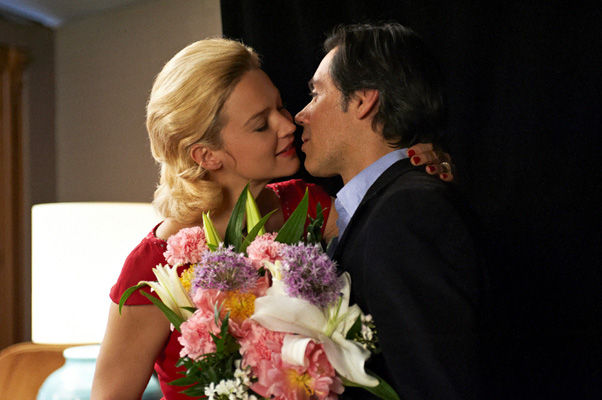One could venture to say that almost everything sounds better in French, especially declarations of love. This Valentine’s day try some of these ways of saying ‘I love you’ to your beloved and learn more French in the process!
1. “Je suis fou de toi”
 “Le Temps de l’aventure,” (2013) Courtesy of France Channel
“Le Temps de l’aventure,” (2013) Courtesy of France Channel
This happens to be my partner’s preferred expression to announce his love for me as he finds ‘je t’aime’ too banal, amicable, and pedestrian. ‘Je suis fou de toi,’ quite literally, ‘I’m crazy about you’ can convey the profound, unsettling condition that love installs in each of us, as someone on the site formerly known as Twitter once said, ‘to love is to be changed.’
2. “Tu es ma raison d’etre”
 “Mensonges et Trahisons,” (2004) Courtesy of France Channel
“Mensonges et Trahisons,” (2004) Courtesy of France Channel
“You are my reason to live”... To me this one can be used as a form of love-bombing thereon to a manipulative degree, and quite frankly, no one should be another person’s raison d’etre, it defeats the purpose of two autonomous individuals engaging in relationship or love story of their own volition, and in order to love someone, you need to love who they are independently from your idolization of them. If, however, your partner is prone to exaggerated expressions of love this one might do the trick but user-discretion is advised because sometimes, l’amour nous rend aveugle…
3. “Je brûle pour toi”
 “Et dieu créa la femme” (1958) Courtesy of France Channel
“Et dieu créa la femme” (1958) Courtesy of France Channel
Nothing kindles l’amour quite as fast as the sensual, ‘je brûle pour toi,’ in English, ‘I burn for you,’ which as one chaste blog article specified, ‘my heart burns for you,’ but I’ll go ahead and say this is ferociously applicable in whatever romantic (read: erotic) circumstances you find use for it.
4. “Mon coeur t’appartient”
 “Caprice,” (2015) Courtesy of France Channel
“Caprice,” (2015) Courtesy of France Channel
In 1952, the American poet e.e. cummings wrote, “I carry your heart with me (I carry it in my heart)” which is undoubtedly my favourite romantic poem and the phrase that most accurately encapsulates ‘mon coeur t’appartient,’ in plain English, ‘my heart belongs to you,’ which, to melodramatic romantics such as myself, is the ultimate gesture of affection and one I recite to my partner with a metaphoric earnestness. It might be cliché but there can be valuable things in clichés and there is in this, a summit of vulnerability and absolute intimacy because no matter what, my heart is with you wherever you are.